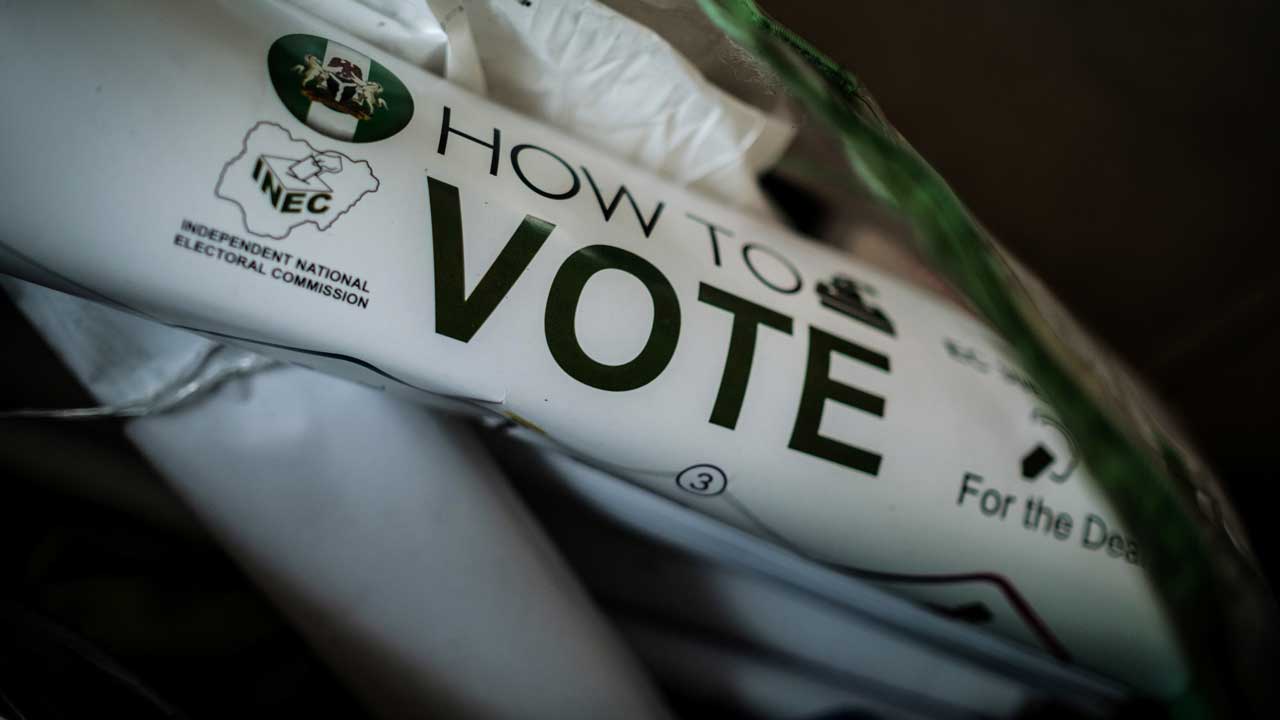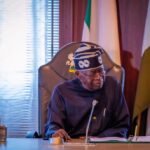Even though Nigeria’s next President appears to be the most unpredictable since our return to democracy, some suspects have already embarked on marketing their ideas underground and through loudmouthed proxies. These potential candidates have inspired the usual national pastime of vilifying the political choices of other citizens, which, as observed in the past, intensifies as the election year approaches. The toxicity and polarization playing out in the analyses and comparisons of the politicians, and their suitability for the office, are just a tip of the long-dreaded iceberg.
The ruling All Progressives Congress has sparked the first fire of crude antagonization in the race to Aso Rock, with the supporters of Vice President Yemi Osinbajo and former Lagos State Governor Bola Tinubu insulting each other’s ancestors to exaggerate loyalty to their principals. But the irony is in the realization, which they seem to have missed, that the two politicians are of the same political tree, one being the other’s political mentor. And that no matter the intensity of their ambition in the race to Aso Rock, they still have a common ground away from their zealous and sycophantic foot-soldiers.
At least, despite the biles, these supporters of Osinbajo and Tinubu have choices they intend to sell. They preserve our democracy much more than than the career vilifiers who appear on the scene every election year simply to tear down all political choices and yet Incapable of recommending a better or practical alternative. The dark horses often misled to run for President weren’t only mostly ill-prepared, they ended up as philosophers of political apathy, after learning that the very characters who sell them in flowery prose either didn’t even register to vote or chose to stay away.
Despite the apocalyptic predictions of Nigeria’s future ahead of the 2019 general elections, after four inauspicious years of Buhari, the voters’ turnout was a telling indictment that the country was probably designed for misery. Only 35.6 percent of the 84,004,084 registered voters took part in choosing the President, and that was a disaster worse than the 44 percent who came out for the 2015 presidential election. Nigerians have always flirted with the idealism of a functional democracy, but quick to play up the supremacy of political thugs over the votes collated at the polling units.
The typical Nigerian politician with access to power is indeed a rigging machine, but the last two presidential elections, while still fractured by documented malpractices, are an improvement over the past. In 2015, Nigerians were able to remove a sitting President despite calculated attempts to undermine the elections, and even though Buhari secured his re-election in 2019, the margin, after he claimed 15,191,847 (56%) of the votes cast and Atiku Abubakar 11,262,978 (41%), was a testament of the receptivity of democracy in Nigeria.
The televised political frauds in the years past are a counterincentive for political participation, but the price of indifference is nothing to brag about. The growing communications around the 2023 elections are coming with hints of apathy as the impossibility of a viable third-force party dawns on the skeptics. But having no option at all, and refusing to participate is a political decision, one that enables the “evil” the fence-sitters oppose. It’s one thing to dismiss all potential political candidates, especially the PDP and the APC, as unfit to take charge next year, it’s another to promote no alternative. Eventually, the people would only choose from the options available, and none would succumb to the blackmail of indecisive or apathetic citizens.
The only way to stop Tinubu or Atiku or Osinbajo or Jonathan as President in 2023 is participating in the processes that would produce them, and that means also registering to join a political party and be a part of the change one has advocated from the sideline. The emotional outbursts and misguided political apathy being designed for the 2023 elections will only serve the interests of the political villains of the skeptics. No citizen’s vote is worthier than the others, and even if this seems like a theoretical projection or oversimplification of our complex electoral system, the power of numbers is one that scares the politicians.
The third-force platforms are there for the vilifiers in search of a saint or dark horse to adopt a presidential candidate. Unfortunately, their performance in the last presidential election is comedy material, and a part of the blames must go to their cheerleaders and fence-sitters. The star candidates of the colourfully hyped third-force movement, comprising Kingsley Moghalu (21,886 votes), Fela Durotoye (16,779 votes) and Omoyele Sowore (34,003 votes) couldn’t poll up to 100,000 votes combined. This defeats the thinking that they would’ve made a difference if they had collapsed their resources into one to field a candidate.
We must also acknowledge that the third force, sometimes, is just PDP and APC at their infancy, if not worse. Some are glorified fronts. On January 30, 2018, I called out the fraud of a third-force political platform at the Yar’adua Centre, Abuja. It’s the launch of former President Olusegun Obasanjo’s idea: Coalition for Nigeria (CN). I was there at the invitation of a popular lawmaker who gave me no details other than the event being an avenue for the birth of a third-force organization. On getting there and discovering that former Governor Olagunsoye Oyinlola of Osun State—whose election was nullified in 2010 after the court discovered he was rigged into office—would chair the event, I knew I was a part of a grand comedy. And then I saw Donald Duke at the high-table. And then Abdul Jahlil Tafawa-Balewa, a former presidential aspirant of whom I knew nothing other than his famous surname.
Mr. Oyinlola lectured the audience on why silence was no longer ideal in the quest to salvage Nigeria, echoing Obasanjo’s letter on the state of the nation. It’s a beautiful speech, and well-written. “We are not a political party, at least for now,” he said to resounding applause from the audience. When it was time to ask questions, I raised my hand at once. I realised it was foolish almost immediately, for over two-third of the hall wore Coalition for Nigeria t-shirts and face-caps. The question I had in mind may attract hostile reactions, I thought.
The Nation newspaper of February 1, 2018 reported the encounter, and that, ‘Gimba asked: “How can we move forward in fixing Nigeria if a body like this, as inspired by the military command of a politician, whom we blame for being part of the problem, appears to have been suggested by him as a way of legitimising his own political legacy and bad precedent that could be a moral burden on the conscience of Nigerians?”’
Unlike the voice that screamed “Who are you to say that?” to me, and made my heart miss a beat, the former Governor was not condescending in the fashion of people his size in his response. “To say that we are legitimising OBJ’s legacy is a bit off the mark,” and that “We must concentrate on the message, not the messenger.” I still appreciated that Mr. Oyinlola didn’t defend Obasanjo, didn’t cite his legacy. But I still interpreted his “the message not the messenger” logic as a tacit agreement with my portrait of Obasanjo as a leader who doesn’t deserve glorification, even though that wasn’t his intention.
So, whether the major parties or a third-force party, the election year is upon us again and there won’t be any ballot paper with “None” as a vying candidate for any elective position. As we lament about the percentage of Nigerians who belong to political parties or are interested in joining one or the refusal of President Buhari to sign the electoral bill, what must not be lost is that the solution to Nigeria’s democracy isn’t the viability of a third force, but the participation of the people who, unfortunately, are too divided to deploy this force.

 Join Daily Trust WhatsApp Community For Quick Access To News and Happenings Around You.
Join Daily Trust WhatsApp Community For Quick Access To News and Happenings Around You.

